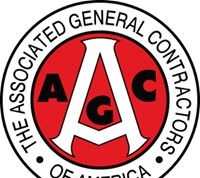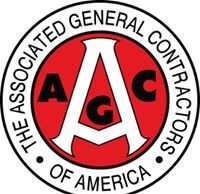WASHINGTON, D.C. – July 25, 2013 – (RealEstateRama) — NAIOP and 20 associations for America’s real estate industry sent a joint letter to all U.S. Senators on Tuesday, July 23, expressing support overhauling our nation’s needlessly complex tax code in a manner that reduces compliance burdens and promotes economic growth.
Download the letter or see the full text below.
The collective real estate trade industry will continue to work with lawmakers to ensure that tax reform creates an environment that encourages an appropriate level of risk-taking, promotes opportunity, and facilitates broad-based economic growth.
July 23, 2013
Dear Senator:
As the leading trade associations for America’s real estate industry, we write to offer our perspective on the request made by Senators Baucus and Hatch to submit ideas for what is essential in a simpler tax system that can “spark a more prosperous and competitive economy.” Although our interests and memberships are diverse, we strongly support overhauling our nation’s needlessly complex tax code in a manner that reduces compliance burdens and promotes economic growth.
Real estate plays a critical role in virtually every facet of our economy, providing offices and factories for our workers to make a living, hospitals and clinics for our sick and injured to convalesce, land that produces food and fiber for the world, stores for our shoppers to buy what they need and want, resorts for our leisure, and shelter for America’s families. The real estate sector generates more than $4.6 trillion in revenues per year and employs 17.6 million Americans in a wide range of good-paying jobs. The real estate industry is also a significant contributor to our nation’s communities, paying taxes when properties are built, operated, sold, or transferred. On a combined basis, the industry contributes a quarter of all Federal and state tax revenue, and as much as 70 percent of local taxes. Real estate activities help keep schools open, police on the streets, and social services available to our nation’s most vulnerable.
While there are differing views on whether tax reform should minimize tax rates or raise revenue, we believe a major objective should be to create an environment that encourages an appropriate level of risk-taking, promotes opportunity, and facilitates broad-based economic growth. This is best accomplished by providing as much flexibility as possible for entrepreneurs and businesses while avoiding inappropriate and unnecessary burdens on investment and cash flows. Real estate is a capital intensive part of our economy, and the real estate sector works to utilize that capital effectively and efficiently to “house” our nation’s residents, businesses, and not-for-profit sectors. To achieve these aims successfully, real estate businesses and their owners must have funds available to service debt, pay employees, or maintain and improve properties. Some tax reform proposals under consideration would alter the nature of the income tax as a tax on net income. Although statutory tax rates matter, they are just one piece of the tax reform puzzle. Other tax provisions, especially the ones discussed below, are often even more crucial. Accordingly, we urge you to adopt a broad view and focus that aims to simplify key provisions, remove barriers to investment, and preserve longstanding provisions on which business decisions have already been made.
Our call for a wider view of tax reform stems from the real estate industry’s experience with the Tax Reform Act of 1986. With its focus on lowering rates, paid for in part with retroactive changes to the tax rules governing invested capital, that Act dealt a severe blow to the real estate industry, depressing values and providing significant disincentives for investment, which remained for years after its enactment. Unintended consequences from changes in the Act led to a collapse in the commercial and multifamily real estate sectors and ultimately contributed to the savings and loan crisis.
We believe that certain foundational elements of our present income tax system are vital to not only the real estate industry, but also to our overall economy and its future well-being. Many of these features have been present in our tax law since its inception and have been instrumental to our success as a nation over the past century. We urge you to include these items in your list of provisions that are vital to our economy and way of life.
Specifically, we ask your support for ensuring the following features are preserved and enhanced in any reformed income tax system:
- Capital Formation – Savings, investment, and capital formation are the seeds of a healthy and vibrant labor market and the foundation for long-term economic growth. Tax provisions that promote capital formation and middle-class mobility contribute to a uniquely American economic model that encourages entrepreneurship and risk-taking and helps families climb the economic ladder to a better life. A modernized tax system must continue to drive new economic activity, development, and progress by rewarding those who put their savings at risk. In addition to preserving a reduced rate on capital gains, tax reform should preserve the tax exclusion on the sale of a principal residence, retain capital gain treatment for real estate partnership profit interests, and stimulate inbound investment by creating a level playing field between real estate and other assets for foreign investors.
- Cost Recovery – Going hand-in-hand with capital formation is the way the tax system treats the capital once it is deployed. Allowing those who invest in the economy, take risks, and create jobs to recover their investment through smart and simple depreciation policies keeps the cycle of investment going strong and leads to more growth and job creation. Tax reform should ensure that depreciation tax rules match the economic life of assets by taking into account natural wear and tear and technological obsolescence. Tax reform should thus decrease the depreciable lives of real estate assets, both owned and leased, to more reasonable periods. It is also critical that stepped-up basis of inherited assets be retained.
- Deductibility of Business Expense – One of the mainstays of our tax system from its inception has been the ability to deduct interest expense. Debt is particularly critical to the capital structure of new construction and development activities, as well as the ongoing management and operation of existing buildings. The real estate industry has generally had only limited access to the equities markets. The interest deduction is not a loophole, and the responsible use of debt by creditworthy borrowers is fully appropriate. Debt, together with equity, is the sine qua non of nearly every significant business and is the very currency of job creation and economic growth. Regulating the use of debt is the proper function of financial regulatory agencies and not the responsibility of the tax code. Interest should continue to be treated as a fully deductible ordinary and necessary business expense.
- Vibrant Housing Sector – Every American deserves a safe and decent place to call home, be it a single-family house or a multifamily residence. On a combined basis, the housing sector directly accounted for about 15 percent of total economic activity in 2012. The deductions for mortgage interest and real property taxes are deeply imbedded into the economics of homeownership and into the prices of houses. Economists generally believe that repeal of these deductions would cause a precipitous fall in home values, which could wreak havoc with our nascent housing recovery, which could in turn threaten our general economic recovery.
Also, given estimates indicating that the housing market is short at least three million affordable rental units, Congress should maintain the Low Income Housing Tax Credit. A program with a long history of broad bipartisan support, the LIHTC is a public/private partnership that has leveraged federal dollars with private investment to support the production of more than 2.6 million affordable units since its inception in 1986. Discontinuing this vital provision would jeopardize the ability to meet the growing need for affordable housing in the future.
- Like-Kind Exchanges – From almost its beginning, our current tax system has recognized that when an investor in real estate exchanges one property for another of like kind, economically, nothing has changed. As with other capital investments, the current law treatment of not recognizing taxable income until an investment is “cashed out” is based on sound tax and economic policy and should be retained. Allowing capital to flow more freely among investments is critical to economic growth and job creation. The like-kind exchange provision permits the efficient use of productive capital and cash flow while allowing taxpayers to shift to more productive but similar property, change geographic locations, diversify or consolidate holdings, or otherwise transition to meet changes in business needs or lifestyle. Like-kind exchanges are widely used by a broad spectrum of taxpayers ranging from farmers, small businesses, and individuals of modest means to larger firms and successful investors, and they remain a vehicle for economic growth.
- Retaining Entity Choice – The dynamic nature of real estate activity in the United States, compared with other parts of the world, is due in part to a tax system that empowers real estate owners, managers, developers, investors, and other market participants to structure their businesses in a way that encourages, rather than impedes, new projects and ventures. Flexibility with respect to entity choice, together with single-level tax treatment constitute two of the fundamental building blocks in place since the beginning of the income tax system for real estate investment and ownership. Under the principle of “entity choice,” real estate owners may elect to operate as partnerships, limited liability companies, real estate investment trusts, C corporations, or S corporations. Notably, nearly half of the 3.2 million partnerships in the country are real estate partnerships, and about 15 percent of the commercial real estate market is owned by stock-exchange-listed REITs. Allowing taxpayers the choice of operating through an entity with a single level of tax ensures the proper allocation of risk and reward in real estate ventures without the harmful economic distortions that would stifle real estate investment and economic growth if entity-level taxation were imposed. Tax reform should fully preserve entity choice and single-level taxation for pass-through and electing entities regardless of the size or characteristics of a business.
Despite the myriad flaws in our current tax system, much of its foundation is solid and has worked well for America. Tax reform that provides the best opportunities for economic growth, job creation, and upward mobility for all Americans demands that we build upon and improve those foundational provisions rather than discard them in the name of perceived simplicity or for the sake of lower statutory tax rates.
We look forward to working with you in the months ahead to improve our tax system with the shared goal of a more prosperous and competitive economy.
Sincerely,
American Land Title Association
American Institute of Architects
American Resort Development Association
Appraisal Institute
Associated General Contractors of America
Building Owners and Managers Association International
CCIM Institute
Federation of Exchange Accommodators
Institute of Real Estate Management
International Council of Shopping Centers
Leading Builders of America
Mortgage Bankers Association
NAIOP, Commercial Real Estate Development Association
National Apartment Association
National Association of Home Builders
National Association of REALTORS®
National Association of Real Estate Investment Trusts
National Multi Housing Council
REALTORS® Land Institute
Society of Industrial and Office REALTORS®
The Real Estate Roundtable

















